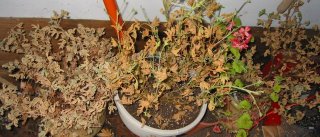 |
| Cymbidium hybrid |
 |
| Plant window in home office. Cymbidium, Dendrobiums, and Oncidium. |
 |
| Sanseveria and twinkle Oncidium orchids |
The cymbidium hybrid was outside west of the house, out of full sun, all summer. It did not get much water. Brought inside in October. Now blooming. Watering with a diluted balanced mineral supplement.
Similar for the Oncidium hybrids.
The Sanseveria was left to languish in dry area on north porch, no water all summer. I brought it inside and left it in garage, in October. It's been there until today. I cut off the dead leaves. It should regenerate by Spring. Gives me something to appreciate growing.
Repotted the Yamamoto dendrobiums. They had similar treatment. I don't know what they'll do. The look good considering how much they dried out.
I wondered how orchids and other plants survived the months-long journeys by ship in the Victorian era, and before that. Many can handle extended period of dry, minimal light, and general neglect, for months. Then regenerate when conditions are better.
There are other Cymbidiums. One looks like it might also bloom. The main issue with them - aphids. The buds are covered with aphids when they are about to bloom. A couple of sprayings with neem oil, and they look great.
It's nice to have plants that were dormant, or at least required minimal effort, in the summer, regenerate in the winter.





